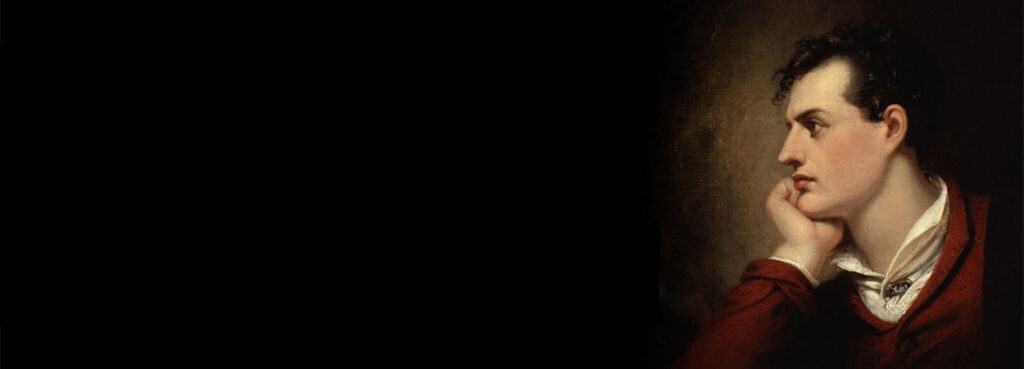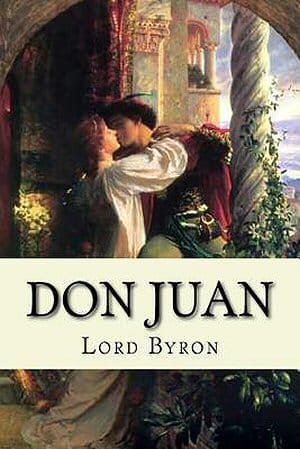Lord Byron: Mad, Bad and Dangerous to know

To celebrate Lord Byron’s birthday (Jan. 22, 1788), lets learn more about him. Lord Byron was a British poet and one of the most influential figures of the Romantic movement in the early 19th century. He was born George Gordon Byron on January 22, 1788, in London, England, to a profligate father and a Scottish heiress mother. He suffered from a congenital clubfoot, which made him sensitive about his appearance and led him to adopt a flamboyant and rebellious persona.
The young Byron
Byron was educated at Harrow and Trinity College, Cambridge, where he developed a passion for literature and poetry. He published his first collection of poems, Hours of Idleness, in 1807, which was harshly criticized by the Edinburgh Review. He responded with a satire, English Bards and Scotch Reviewers, in 1809, which established his reputation as a witty and controversial writer. Byron also embarked on a grand tour of Europe and the Mediterranean, which inspired his first major work, Childe Harold’s Pilgrimage, a narrative poem about a disillusioned young aristocrat who travels in search of adventure and meaning. The first two cantos of the poem were published in 1812 and made him an overnight sensation. He became a celebrity and a leader of the fashionable society, attracting many admirers and lovers, both male and female.
Byron’s personal life
Byron’s personal life was marked by scandal and controversy. He married Anne Isabella Milbanke in 1815, but they separated after a year, amid rumors of his incestuous affair with his half-sister Augusta Leigh, and his bisexuality. He also had a daughter, Ada Lovelace, with his wife, and another daughter, Allegra Byron, with his mistress Claire Clairmont, the stepsister of the poet Percy Bysshe Shelley. Byron left England in 1816, never to return, and settled in Switzerland, where he befriended Shelley and his wife Mary Shelley, the author of Frankenstein. He then wrote the third and fourth cantos of Childe Harold, as well as several other poems, such as The Prisoner of Chillon, Manfred, and The Lyrical Dramas.

Don Juan: Byron’s masterpiece
Byron then moved to Italy, where he lived for seven years, in Venice, Ravenna, and Pisa. He continued to write prolifically, producing some of his best and most innovative works, such as Beppo, Mazeppa, The Prophecy of Dante, and his masterpiece, Don Juan, a mock-epic poem that satirizes the conventions of romance and heroism, and blends humor, irony, and social commentary. Byron also became involved in the political and cultural affairs of Italy, supporting the cause of the Carbonari, a secret society that sought to overthrow the oppressive regimes of the Italian states. He also developed a close friendship with the poet and patriot Teresa Guiccioli, who became his last love. Don Juan DeMarco, the 1994 movie starring Johnny Depp and Marlon Brando, is inspired by Lord Byron’s poem.
Byron’s final adventure was his participation in the Greek War of Independence against the Ottoman Empire. He had always admired the ancient Greek civilization and culture, and felt a strong sympathy for the modern Greeks, who were struggling for freedom and democracy. Byron joined the Greek cause in 1823, and contributed money, weapons, and his own fame and charisma to the revolution. He arrived in Missolonghi, a besieged town in western Greece, in January 1824, and was appointed as a commander of the Greek forces. However, he fell ill with a fever and died on April 19, 1824, at the age of 36. His death was mourned by the Greeks, who considered him a national hero, and by the literary world, who recognized him as one of the greatest poets of his time.
Byron’s legacy
Byron’s influence on literature and culture was immense and lasting. He was widely admired and imitated by his contemporaries and successors, both in Britain and abroad, inspiring the Romantic movement, which emphasized individualism, emotion, imagination, and freedom. He also influenced the development of various genres, such as the historical novel, the Gothic novel, the vampire fiction, and the Byronic hero, a type of protagonist who is dark, brooding, rebellious, and flawed. Byron also left a legacy of social and political activism, as he championed the causes of liberty, justice, and human rights. He was a poet of the world, who embraced the diversity and richness of different cultures and languages, and who expressed his own unique and original vision of life and art.
0 Comments